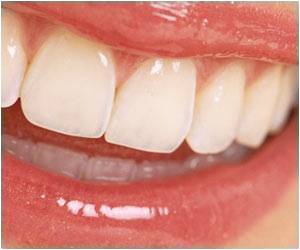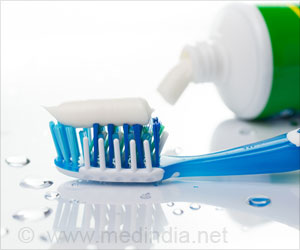Highlights:
- Excess fluoride in drinking water can cause kidney and liver damage in adolescents and if there is pre-existing liver or kidney disease, these children tend to accumulate fluoride in their body with resultant toxicity symptoms
- In addition to liver and kidney damage, fluoride toxicity can cause bone and teeth damage, thyroid problems, neurological problems, heart problems and affects protein metabolism as well
- Public health measures such as adding fluoride to drinking water or salt for improving dental health should be considered as potential health hazards in adolescents and children
The findings of the study appear in the journal Environment International .
Ashley J. Malin, PhD, postdoctoral fellow in the Department of Environmental Medicine and Public Health at the Icahn School of Medicine at Mount Sinai and the first author, said: "This study's findings suggest that there may be potential kidney and liver health concerns to consider when evaluating fluoride use and appropriate levels in public health interventions.”
Role of Fluoride in Liver and Kidney Function
- The study team estimated fluoride levels in blood samples of 1,983 adolescents and the fluoride levels in the tap water in the homes of 1,742 teenagers
- This study team’s observations, along with prior studies of the effects of exposure to high fluoride levels in children, suggest there is a dose-dependent relationship fluoride exposure and liver and kidney injury
- Despite low levels of fluoride in tap water, chronic exposure to low fluoride levels can affect your kidneys and also lead to liver failure
What is Safe Fluoride Level?
WHO recommends 1.5 mg/L as the maximum level of fluoride content in drinking water. About 1-1.5 ppm is considered safe and good for dental health, but water sources in several nations have levels over 2 ppm that can pose serious health hazards.Sources of Fluoride Exposure
- Drinking water supply
- Fortified salt
- Toothpaste
- Varnishes
- Pesticides
- Foods and drinks made from water containing fluorine
- Water resistant and stain proof objects containing PFCs (perfluorinated compounds)
How to Prevent Exposure to Fluoride
Removing fluoride from water is not easy and the process is expensive. The ideal solution is to find a supply of water that is safe to consume. If that is not possible, the following methods can be used to remove fluoride from drinking and cooking water- Use a water filter for drinking water
- Reverse osmosis treatment of cooking and drinking water
- Addition of activated alumina (Nalgonda method) or bone charcoal to drinking water; the resulting sludge is rich in fluoride and must be discarded before cooking or drinking
- Buying pesticide free organically grown fruits and vegetables
- Limit tea intake (tea leaves have high fluoride content)
- Avoid fluorinated salt
- Avoid Teflon cookware containing PFC
- Educate children not to swallow toothpaste
In summary, children and adolescents especially should avoid exposure to excess fluoride as it can cause serious health problems and the health hazards in children must be considered before adding fluoride to drinking water supply.
Reference:
- Water sanitation hygiene - (https://www.who.int/water_sanitation_health/diseases-risks/diseases/fluorosis/en/)
Source-Medindia
















